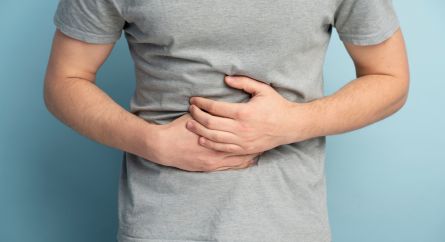Six ways to reduce your risk of colorectal cancer
Cancer info
Colorectal cancer is one of the most common cancers, here are 6 ways to help protect your colorectal health.
- Get screened for colorectal cancer. Screenings are tests that look for cancer before signs and symptoms appear. These tests can detect colon or rectal cancer earlier, when treatment is more likely to be successful. The American Cancer Society recommends starting testing at age 45 for people at average risk. Some colorectal screening tests can also detect and remove precancerous growths (polyps) in the colon or rectum. Polyps are not cancerous, but over time polyps can develop into cancer. Removing them can reduce the risk of cancer. Talk to your healthcare professional about when you should start screening and which tests might be right for you.
- Eat plenty of vegetables, fruits and whole grains. Diets high in vegetables, fruits and whole grains have been linked to a lower risk of colon or rectal cancer. Also, eat less red meat (beef, pork, or lamb) and processed meat (hot dogs and some deli meats), which have been linked to an increased risk of colorectal cancer.
- Regular exercise. Your risk of colorectal cancer may be higher if you are not physically active. Exercising more can help lower your risk.
- Control your weight. Being overweight or obese increases your risk of developing and dying from colon or rectal cancer. A healthier diet and increased physical activity can help you manage your weight.
- Avoid tobacco. Long-time smokers are more likely than non-smokers to develop and die from colon or rectal cancer. If you smoke and want to quit see your doctor. Getting help will increase your chances of successfully quitting smoking.
- Avoid tobacco. Long-time smokers are more likely than non-smokers to develop and die from colon or rectal cancer. If you smoke and want to quit see your doctor. Getting help will increase your chances of successfully quitting smoking.
- Avoid alcohol. Alcohol consumption is associated with a higher risk of colorectal cancer. Better not to drink.
- Avoid alcohol. Alcohol consumption is associated with a higher risk of colorectal cancer. Better not to drink.
Studies have shown that diet, body weight, and exercise habits are strongly associated with colorectal cancer risk. Changing some of these lifestyle habits can be difficult. But these changes could also reduce the risk of many other types of cancer, as well as other serious conditions like heart disease and diabetes.

